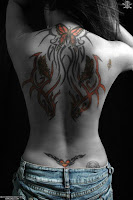"For as long as humankind has sought to understand our place in the universe and our connection with a higher power, we have struggled with the question of whether our lives are predestined and planned out, or whether they are entirely of our own creation. The fate vs. free will debate has gone on for centuries, although it was arguably brought into focus by the church, since one of the cornerstones of the churches power was the tenet that individuals had to make a conscious choice as to whether they wanted salvation or damnation.
The church does not have a history of playing nice with people who hold different belief structures; at various times in history, and with varying degrees of success, the church waged war on all things divinatory. Astrology has been a casualty of war many times; in fact, the Church was so effective in this campaign that Western astrology almost died out entirely in the Middle Ages.
Today of course, most New Age spirituality places great emphasis on our gift of absolute free will; that we make our own choices, and must learn to take full responsibility for the world we have created for ourselves. If this is the case, then why can astrological predictions be so accurate? How can a birth chart show who we are if we are truly free to choose for ourselves. The answers is this: we do have absolute free will; however, we almost never use it. This is why predictive astrology works, and this is also how natal astrology has evolved into such a powerful tool for self-discovery, understanding, healing and transformation." By Kevin Burke, Understanding the Birth Chart.
"If we pass the test, then fate will move onto the next set of lessons, like a pupil graduating to a higher class, but the lessons will not cease. So in this model, and it is only a model, fate at a particular time presents the individual with an option, or lesson, arranged in a variety of ways, a little like a multiple choice list. The individual, being fated by the quest for wholeness, selects one or more options on the list, either consciously or unconsciously. We would like to think an option is selected based on the individuals desire for maximum personal growth but an individual has free will in these matters. So the individual’s ability to choose an option is assigned free will, and allocated to fate is the nature and timing of the multiple choice list." By Bernadette Brady, The Eagle and the Lark.
"To a degree we are in tune with the cosmos, we have developed a free will and we can rule the planetary influence; which means the influences come all the same and affect us, but by rising above them we may divert them into proper channels; - we are no longer slavishly subjected to them but rule them to a degree. Men high and low, moral and immoral, all are subjected to cosmic influences, but in different ways. When I speak in this sense about the highest amongst us, I don’t wish to be understood wrongly. There are exalted individuals who in a sense have liberated themselves of the cosmic influences, but only through their will having become one with the will of the Logos, (the Creator of the Cosmos), in other words because they have become in tune with the cosmos. And yet, I keep supposing, even for these highest among the high ones, that they - as long as they walk in a physical body and therefore needs must experience the limitation through this, - will experience a harmonious aspect of e.g Jupiter as helping, beatifying and beneficent and a disharmonic aspect of e.g Saturn as depressing and opposing and limiting." By AQ Libra - Astrology - Its Techniques and Ethics.
"A lot of people are frightened by astrology because they believe it claims to predict fate. Once upon a time, during the Middle Ages and the Renaissance, it claimed to do precisely that. But astrology has evolved since then, just as medicine has. We in the West - unlike India - don’t like to think there’s any factor shaping our lives, except ourselves and the tax collector. The social service acknowledge a little pressure from environment, psychology from childhood. But for the most part we want to believe we’re free to make choices and decisions. Any impingement on our personal freedom is acceptable only if it comes in a recognizable form, like bad weather, or the ’act of God’ as it’s called in insurance policies. We call those accidents.
And when something happens that we can’t control, we whinge and moan a lot. Particularly if it’s another person that we can’t control: the child grows up differently form our original plan, the husband who leaves, the wife who decides not to be submissive and adoring anymore, the mother who interferes, the boss who doesn’t appreciate our work. We don’t see these unpleasant intrusions as fate, we see them as nuisances, obviously due to the stupidity of others, and we do our best to eradicate the cause, which is naturally the fault of the other person. But is it really the fault of the other? And how free are we? Astrology offers a humble suggestion. Numerous poets, philosophers and psychologists have offered the same suggestion in different languages throughout the centuries. Here are Rainer Maria Rilke’s words for it: "What is within surrounds us." By Liz Greene, Astrology for Lovers.
"On the surface the Hindu astrologer is apparently a fatalist, but individually he has a firm belief in free will within certain well defined limits. The very well established belief in re-incarnation and transmigration makes him a fatalist so far as the rewards and punishments of past lives are concerned, and it is to causes set in motion in a former birth that he traces the inevitable fate of the present life; for he has a wider comprehension of the laws of Karma than the western astrologer. The belief in fate and free will is only partial, for a man is neither wholly fated nor wholly free, and the only way to measure the extent of his limitations is to endeavour to realise his condition of knowledge or ignorance; which, in a well organized society. Would attract him to the caste or status in society to which he naturally belongs. A man with knowledge will endeavour to work with one who has power to help him, while a man who is ignorant may apply to a money lender charging a large percentage of interest, and thus making conditions more and more hopeless." By Alan Leo, Esoteric Astrology.
"In this view, knowing the basic archetypal dynamics and patterns of meanings in one’s birth chart allows one to bring greater awareness to the task of fulfilling one’s intrinsic potential, as in Jung’s concept of individuation. The more accurately one understands the archetypal forces that inform and affect one’s life, the more flexibly and intelligently responsive one can be in dealing with them. To the extent that one is unconscious of these potent and sometimes highly problematic forces, one is more or less a pawn of the archetypes, acting according to unconscious motivations with little possibility of being a co-creative participant in the unfolding and refining of those potentials." Richard Tarnus, Cosmos and Psyche.
"Observing them, he expects to notice that, while the aspect is in force, each recipient of it will undergo an experience of the type described in his textbooks as ’Uranian’; but he can tell in advance upon what level any given native will take the aspect. Some resent and fight the change in their circumstances, most are made unhappy by having to adapt themselves, a few by taking the tide at flood gain worldly advantage, but others increase their understanding, make spiritual progress, and suffer little or nothing. The influence will arrive in any case, but the free will consists in deciding to use it well or badly, cheerfully or sadly." By Rupert Gleadow, The Origin of the Zodiac.



























